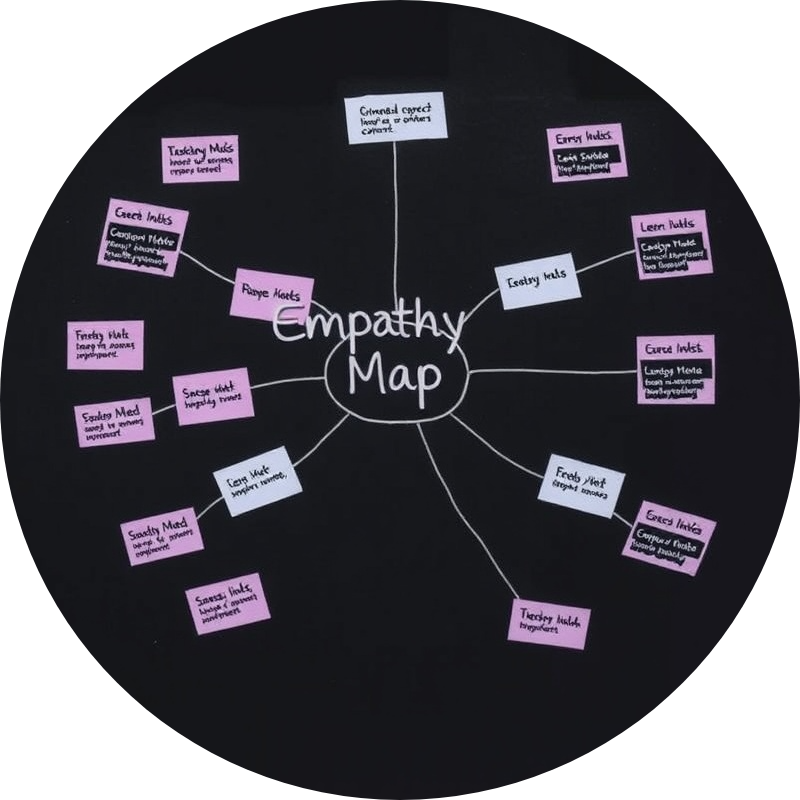Did you know that over 65% of all new clients for pressure washing businesses come from referrals and networking partnerships? In this comprehensive guide, we’ll reveal how building alliances with painters, roofers, and realtors can not only increase your leads but also help establish your pressure washing business as a local authority. If you want to grow your business, these strategies will equip you with insights and actionable steps to unlock a steady stream of potential customers and long-term success. Ready to transform your washing company? Let’s dive in. A Surprising Statistic: Why Pressure Washing Networking and Partnerships Are Essential for Growth
Many pressure washing business owners underestimate the power of networking and partnerships, but the numbers speak for themselves: over 65% of successful pressure washers report that most new business comes directly from referrals. This reality underpins why a strategic, relationship-focused approach is so important in a competitive market. Getting listed on search engines, having an active business profile, and running digital ads are powerful, but partnering with respected local businesses—especially painters, roofers, and realtors—delivers a consistent flow of high-quality, pre-qualified clients.
Establishing partnerships means more than just swapping business cards. It’s about creating genuine, mutually beneficial connections that result in a win-win for everyone involved. A painter refers you before a new paint job, a roofer introduces your services to homeowners in need of maintenance, and realtors rely on you to increase curb appeal before a sale. With smart marketing strategies and proactive outreach, your washing business can benefit from the credibility and trust that local professionals bring, giving you an edge over competitors and helping you grow your business year after year.
What You'll Learn About Pressure Washing Networking and Partnerships Proven strategies for creating lasting referral partnerships
Building trust with painters, roofers, and realtors to grow your business
Real-world examples from successful pressure washing networking and partnerships
Actionable steps to incorporate pressure wash marketing strategies
Answers to common referral partnership questions Understanding Pressure Washing Networking and Partnerships
What Are Pressure Washing Networking and Partnerships?
In the context of the pressure washing industry, networking and partnerships mean establishing formal or informal alliances with other local professionals—such as painters, roofers, and realtors—who consistently interact with property owners. These alliances create a reliable referral system, ensuring a steady flow of potential customers who already trust the person making the introduction. Rather than marketing efforts that cast a wide net and hope for results, strategic pressure washing networking and partnerships are all about laser-focused collaborations that deliver results for everyone involved—your own business, the referring partner, and the client who receives top-notch customer service.
A good partnership is about synergy. Painters need clean surfaces before they work, roofers frequently uncover dirty or mossy rooftops, and realtors want to boost curb appeal to accelerate property sales. By aligning with these businesses, pressure washers can become the go-to experts in their market. Partnerships also help you stand out in search engine results and cement your business profile with built-in trust, making it easier to convert referrals into satisfied, long-term clients. Benefits of Referral Partnerships for Your Pressure Washing Business Increased leads from painters, roofers, and realtors
Enhanced credibility and word-of-mouth marketing
Improved customer service and trust among local businesses
More opportunities to grow your business sustainably Why Painters, Roofers, and Realtors? Targeting the Right Partners in Pressure Washing Networking and Partnerships
Painters: Win-Win Scenarios in Pressure Washing and Painting
Painters and pressure washers enjoy an almost perfect partnership. Before a painter can deliver a quality finish, surfaces must be clean and free of debris, mildew, and old paint. This prerequisite makes a pressure washing service a natural first step in many painting projects. By collaborating and building referral partnerships, painters can offer their clients a streamlined, bundled service—while pressure washers secure consistent washing jobs. As a result, reciprocal referrals flourish. Imagine being the trusted washing expert a painter calls before every exterior project; that’s a direct pipeline to new work and new clients, built entirely on mutual benefit and trust.
Additionally, smart painters know that recommending a professional pressure washer adds credibility to their own reputation. Satisfied clients will likely spread the word about both businesses, driving more leads for everyone. You can reinforce this partnership through co-marketing materials, joint discounts, and case studies showcasing impressive “before and after” results. These strategies create alignment and lasting relationships that grow your business for the long haul.
Roofers: Building Alliances for Ongoing Washing Jobs
Roofers and pressure washing businesses are natural collaborators across both the residential and commercial markets. Roofers often encounter moss, algae, or built-up debris that needs professional cleaning before or after roof repairs and replacements. By working alongside reputable roofers, a pressure washing business can provide expert cleaning services, making the roofer’s job easier and elevating the final results for the client. The relationship is highly synergistic: while roofers handle repairs and installations, pressure washers take responsibility for keeping roofs clean and protected, extending their lifespan and enhancing property value.
Establishing these alliances can lead to recurring washing jobs as roof maintenance often demands regular attention. Many successful pressure washers report that roofers are their most consistent source of work outside of the busy house-washing season. As you gain trust, roofers may even refer you for related washing services throughout a property—patios, gutters, and walkways—amplifying your reach and reputation in the washing business. Realtors: Real Estate Agents as Key Drivers of Pressure Washing Job Referrals
Realtors are exceptionally valuable partners for every pressure washing business owner. When preparing a property for sale, first impressions matter—a clean, sparkling exterior greatly enhances curb appeal and can even increase property value. Savvy realtors understand how vital this visual boost is, which is why they often recommend partnering with a dedicated pressure washing company before showings or open houses. In return, they appreciate reliable service and fast turnaround times that help beautify listings and satisfy their own clients.
When you consistently deliver great results for realtors, you earn a trusted spot in their network, resulting in a recurring flow of fresh business and positive word-of-mouth referrals. This shift can quickly propel your washing business from occasional gigs to being the referral of choice, creating longevity and prosperity for your company in any housing market condition.
As you develop these referral relationships, consider how technology can further streamline your marketing efforts. For example, integrating AI-powered video tools into your outreach can help you stand out and communicate your value to potential partners more effectively. Discover practical ways to leverage these innovations in this guide to revolutionizing your pressure washing marketing with AI tools.
Step-by-Step Guide: Creating Your Pressure Washing Networking and Partnerships
Step 1: Research Local Painters, Roofers, and Realtors Finding the right local businesses
Analyzing their customer base and market reach
Identifying alignment with your pressure washing services Begin your networking journey by researching established painters, roofers, and realtors operating locally. Look for businesses with positive reviews, a strong online presence, and active community involvement. This groundwork ensures that you align with reputable professionals whose clients match your target market. Evaluate their online reputation, visit their business profiles, and check customer reviews on Google Business and social media. The right partners should share your values around customer service and quality work, making collaborations both effective and rewarding.
After identifying potential partners, analyze their typical customer base. Are they frequently serving clients who would benefit from a pressure washing job? Are they expanding their market reach or focusing on your service area? These insights will help you prioritize the relationships with the highest potential for mutual growth, setting the foundation for long-term success. Step 2: Prepare Your Pitch for Pressure Washing Networking and Partnerships
Once you know who to target, it’s time to prepare a compelling pitch for each prospective partner. Tailor your proposals to show how your washing services solve their clients’ pain points. For painters, focus on how a clean surface ensures better paint adhesion; for roofers, highlight preventative roof cleaning; and for realtors, emphasize how a sparkling exterior speeds up property sales. Whenever possible, use case studies or testimonials from previous partnerships—these real-world examples illustrate your reliability and effectiveness.
Include specific collaboration ideas, such as bundled discounts, co-marketing opportunities, or shared referral tracking. Your pitch should make it easy for the other business to say yes, showing how partnership will benefit their own washing business as much as yours. Personalizing your message and demonstrating knowledge of their services shows respect and increases your chance of success.
Step 3: Initiate the Conversation—Networking Approaches That Work Attending industry networking events
Leveraging social media platforms and business profiles
Utilizing customer service and strong online presence for outreach There’s no “one size fits all” way to start a business relationship, but some approaches work particularly well for pressure washing networking and partnerships. Attend local business meetups, home improvement expos, and industry seminars—these face-to-face events are prime opportunities to connect with painters, roofers, and realtors in an informal setting. Outside of events, maintain a strong online presence and engage with potential partners via LinkedIn, Facebook, and industry-specific social networks. Comment on their posts, share relevant content, or introduce yourself via direct message—showing genuine interest in their business before making your pitch.
Your existing customer service can also be a powerful tool. Satisfied clients may have connections to local professionals. Politely ask for introductions or referrals, and offer incentives for any successful partnerships formed. Remember, your business profile and active online engagement often precede you—so make sure every interaction is respectful, professional, and value-focused. Step 4: Formalize the Partnership Structure
When your partner shows interest, it’s crucial to set expectations in writing. A simple partnership agreement might include processes for referring new clients, splitting leads, or sharing marketing costs for joint campaigns. Clear communication is critical—define roles, outline mutual commitments, and ensure every referral meets your service standards. Some businesses develop a shared contact form, others use tracking logs or co-branded materials that streamline transparency and accountability. The takeaway is simple: a formal, well-structured partnership fosters trust, reliability, and a steady stream of new business for all parties involved.
Additionally, periodic review of your agreement ensures that your goals align and that your marketing efforts remain fresh and effective. Whether you opt for a handshake deal or a written contract, regular communication will keep everyone invested in the partnership’s continued success.
Leveraging Marketing Strategies to Strengthen Your Pressure Washing Networking and Partnerships
Collaborative Marketing: Pressure Washing Business Promotions & Campaigns Co-branded marketing materials
Joint Google Business profile listings
Social media campaigns featuring partner businesses Effective co-marketing efforts amplify the benefits of pressure washing networking and partnerships. Work with your partners to create co-branded flyers, postcards, or digital ads promoting bundled offers to shared audiences. Consider developing joint Google Business profile listings that highlight both your pressure washing business and your partner’s services, appearing together in relevant local searches. These strategies increase visibility and reinforce your credibility in the eyes of potential customers.
Running joint social media campaigns is another way to highlight your relationships. Coordinate posts that showcase successful projects or run cross-promotions for local events and community drives. By pooling your marketing resources and amplifying each other’s reach, you tap into new networks and keep your brand top-of-mind with homeowners, property managers, and realtors alike. Highlighting Successful Pressure Washing Partnerships "Our alliance with a local roofer doubled our client leads in just six months." – John D., pressure washing business owner This testimonial represents how strategic partnerships can fast-track business growth. When you combine resources, expertise, and word-of-mouth marketing, it’s easier to secure bigger washing jobs, improve online search engine visibility, and impress both existing and potential customers. Don’t underestimate the power of sharing your success stories online and during networking events—they offer proof and inspiration to new partners who are considering working with your washing company.
Utilizing Social Media and Online Presence for Effective Pressure Washing Networking and Partnerships
Optimizing Your Business Profile to Attract Partners and Potential Customers
The foundation of every successful pressure washing networking partnership is a strong, professional online identity. Your business profile on Google Business, LinkedIn, and relevant directories should highlight your expertise, range of services, and reputation. Feature testimonials from painters, roofers, and realtors you’ve already worked with, and ensure your listings are up-to-date with accurate contact details and recent project photos.
Enhance your profile by showcasing value to potential partners: mention referral incentives, co-marketing opportunities, or repeat client testimonials. A polished, comprehensive online presence sends the message that you are ready for collaboration, while helping you appear more prominently in local search engine results where potential customers are looking for trusted service providers. Engaging Local Businesses via Social Media Platform Collaborations How to tag and promote partners
Running joint giveaways or referral contests
Sharing before-and-after power wash content The most effective social media strategies for building cleaning industry partnerships involve direct engagement with partner businesses and their audiences. Consistently tag your partners in posts, stories, or videos showcasing joint projects and referrals. Launch collaborative giveaways or referral contests that motivate your combined followers to engage with both brands, thereby expanding your reach while supporting your partners’ growth.
Visual content is especially compelling: share before-and-after photos or videos of your power wash and pressure washing job results. These posts attract attention from homeowners and demonstrate the transformation your company and partners deliver. When your posts highlight real-world teamwork and satisfied customers, you cultivate trust and keep your business profile top-of-mind for both prospective partners and clients alike. Maintaining and Nurturing Pressure Washing Networking and Partnerships
Consistent Communication and Customer Service Standards Scheduling regular check-ins
Sharing feedback and results
Ensuring all washing service referrals meet quality benchmarks Successful pressure washing networking and partnerships depend on more than just starting strong—they require ongoing care and communication. Set up regular check-in meetings with your partners to review referral volume, share feedback, and brainstorm new marketing strategies. By maintaining consistent dialogue, you show commitment to the partnership and demonstrate that you value their input and business.
Customer service excellence should extend to every referral. Make certain that any washing job delivered through the partnership meets or exceeds expectations. This protects your partner’s reputation as well as your own, laying the groundwork for lasting cooperation and regular, quality referrals. Don’t forget to track outcomes—when you can showcase positive results or testimonials, everyone benefits. Evaluating Success: Metrics for Grow Your Business Metrics for Partnership Success Referral Volume
Repeat Business
Conversion Rate
Customer Satisfaction Number of new clients received via referral
Frequency of ongoing washing jobs from each partner
Percentage of referrals that convert to booked jobs
Client feedback and satisfaction ratings post-service Tracking these metrics lets you identify what's working and where to improve. For example, a high referral volume but low conversion rate may mean your pitch or follow-up process needs refining, while solid repeat business and satisfaction scores indicate a thriving partnership structure.
Case Studies: Real-Life Examples of Effective Pressure Washing Networking and Partnerships
Painter Partnership Turns into Long-Term Washing Job Pipeline
One washing business in the Southeast United States built a strategic alliance with a reputable painting company. By bundling their services—offering a discount for homes cleaned before painting—they streamlined jobs for both businesses. Within a year, the pressure washing business saw a 35% rise in recurring revenue, and the painter enjoyed smoother, higher-quality results for clients. This partnership quickly evolved into mutual referrals for every project, essentially creating a long-term pipeline of washing jobs and painting projects for both companies.
Roofing Company and Pressure Washer Collaboration Increases Leads
A commercial roofer and local pressure wash business collaborated to target large property management firms. They jointly pitched packages for ongoing roof maintenance, offering periodic roof cleaning and inspections to keep properties safe and visually appealing. Within six months, both companies reported a steady uptick in leads and closing rates. One roofer shared, "We can promise a full solution—from structural integrity to appearance—which makes our bundled offer hard to beat for clients."
Realtor Referrals: From One-Time Jobs to Lasting Pressure Washing Business
After a pressure washer impressed a top-performing realtor with a dramatic home transformation, the realtor began recommending the service to every client preparing to list their property. Over two years, this relationship turned what began as one-time washing jobs into a thriving business with a dedicated stream of weekly referrals. The consistency allowed the washer to invest in additional staff and equipment, further scaling their reach and impact within the real estate community.
Overcoming Common Challenges in Pressure Washing Networking and Partnerships
Addressing Misalignments and Ensuring Mutual Value
No partnership is without obstacles. Common challenges include mismatched expectations, inconsistent service standards, or changes in workflow. To keep things running smoothly, agree on clear deliverables at the outset and revisit them regularly. If disputes arise, hold open discussions—ideally face-to-face or via video conferencing—to clarify concerns and find win-win solutions. Remember, effective partnerships prioritize open dialogue, shared goals, and proactive problem solving, not finger-pointing. Keeping value and fairness central to every discussion ensures longevity for both your washing business and your referral network.
Handling Competition and Conflict in Local Business Referrals Clear communication is key for preventing misunderstandings
Consider non-compete agreements to protect unique collaborations
Regularly showcase your value in the washing business through testimonials and proven results Competition is healthy, but conflict can erode even promising relationships. By setting firm boundaries—such as exclusive territories or service types—you maintain integrity and fairness. When your value is clear and your communication consistent, conflicts become rare and easily resolved, helping you continue to grow your business through strong partnerships. Clip of a pressure washing business owner confidently presenting partnership opportunities to a painter, a roofer, and a realtor in real-world settings. The video emphasizes authentic conversation, handshakes, and professionalism both in the office and onsite at a residential home.
Watch real-life footage of a pressure washing job that began with a business referral. Hear from both companies as they discuss building trust, the partnership process, and the client’s results. These interviews provide a candid glimpse into the day-to-day collaboration that drives effective pressure washing networking and partnerships.
People Also Ask About Pressure Washing Networking and Partnerships
How do I find clients for pressure washing?
Use a mix of marketing strategies—partnering with painters, roofers, and realtors, optimizing your strong online presence, and proactively seeking potential customer referrals. Networking through local business associations and social media groups will help you expand your client base and grow your business.
What percent of pressure washing businesses fail?
Nearly 50% of pressure washing businesses close within three years—often due to a lack of effective networking and referral partnerships. Building strong business relationships and reliable referral systems can dramatically increase your chance of long-term success and stability.
How much does it cost to pressure wash a 1000 sq ft house?
The average pressure washing services fee for a 1,000 sq ft house typically ranges from $150 to $300, varying by region and the complexity of the washing job. Always request an estimate and clarify the scope of work with your cleaning provider before proceeding.
How to promote pressure washing business?
Promote your business through a robust online presence, social media marketing strategies, networking with other local businesses, and proactively building pressure washing networking and partnerships. Don’t neglect traditional approaches—flyers, door hangers, and word-of-mouth campaigns remain effective for reaching your local community.
Actionable Checklist: Start Building Pressure Washing Networking and Partnerships Today Identify and research local painters, roofers, and realtors
Prepare and personalize partnership pitches
Set up initial meetings—in person or via social media
Draft collaborative marketing ideas
Review and refine your partnership agreements periodically FAQs About Pressure Washing Networking and Partnerships What makes a good referral partner for a pressure washing business?
How can I track the effectiveness of my partnerships?
Should I offer incentives for referrals?
How do I prevent conflicts of interest?
How can social media help my pressure washing networking efforts? Key Insights on Pressure Washing Networking and Partnerships Referral partnerships multiply your leads and credibility
Target aligned businesses—painters, roofers, realtors—for best results
Strong online presence and consistent marketing maximize referrals
Ongoing communication and mutual value ensure lasting partnerships In Summary: Mastering Pressure Washing Networking and Partnerships
Strategic networking with painters, roofers, and realtors is the lifeblood of sustained growth for any pressure washing business. Begin cultivating partnerships today to transform your service and grow your business. Ready to Expand? Start Building Pressure Washing Networking and Partnerships Now!
Don’t wait to create new opportunities—take the first step today. Start building powerful partnerships and watch your pressure washing business reach new heights!
Building strong referral partnerships is just the beginning of your business’s growth journey. If you’re ready to take your marketing to the next level, explore how advanced tools and strategies—like AI-driven video content—can help you reach new audiences and make an even greater impact in your local market. For more inspiration and actionable ideas, check out our comprehensive resource on transforming your pressure washing marketing with AI tools. Embracing innovation alongside relationship-building will position your business for long-term success and set you apart as a true leader in the industry.

 Add Row
Add Row  Add
Add 

 Add Row
Add Row  Add
Add 



Write A Comment